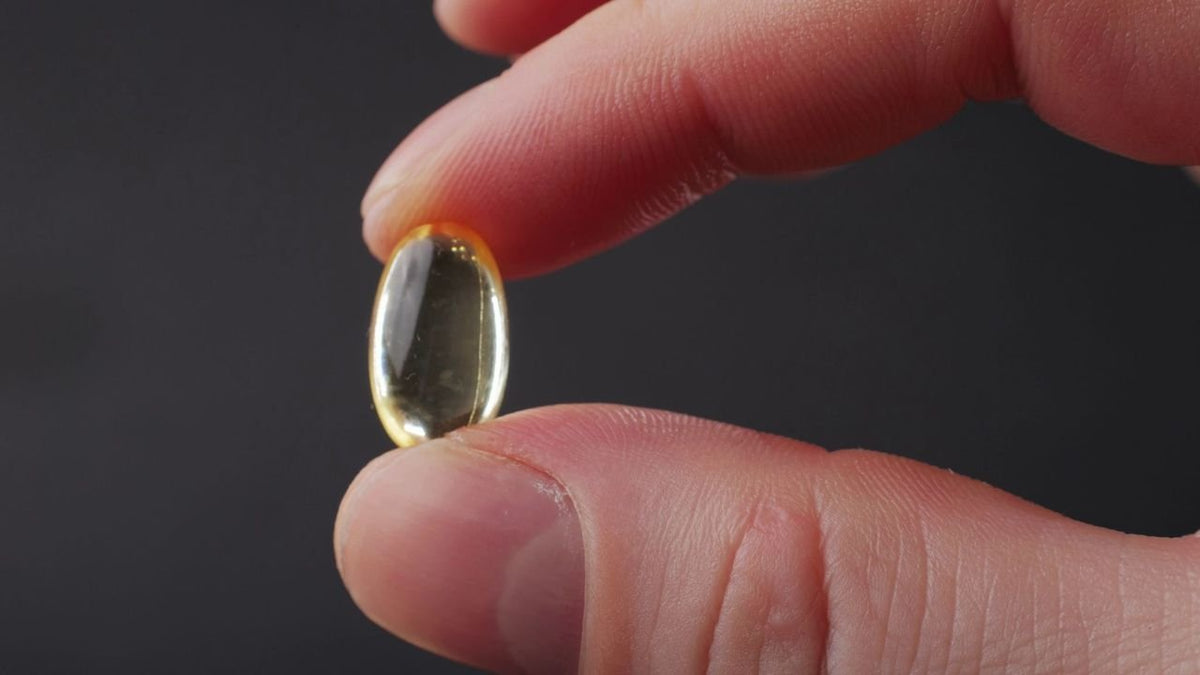

GLP-1 medications like semaglutide (Ozempic, Wegovy) and liraglutide (Saxenda, Victoza) have changed the way many people approach weight loss and metabolic health. But as effective as they are, these medications don’t work in isolation.
In fact, what you put into your body {from food to supplements} can significantly influence your results and long-term well-being.
This guide is designed to help you understand the role of supplementation during and after GLP-1 therapy, plus how it can support your weight loss journey in a sustainable and health-first way.
Table of Contents
Why Nutrient Support Matters on GLP-1s?
GLP-1 receptor agonists work by increasing satiety and improving insulin sensitivity. These effects can reduce calorie intake and support fat loss, but can also unintentionally decrease your intake of essential nutrients, particularly if your appetite shrinks.
Common challenges reported by users include:
- Low energy or fatigue
- Digestive sluggishness
- Muscle mass loss or weakness
These are signals that your body may need additional support. Strategic supplementation can help bridge the gap.

What Supplements Should You Take on GLP-1s?
Using GLP-1 medications like Ozempic or Wegovy can reduce appetite and food intake, which may lead to nutrient gaps.
To support energy, muscle, and digestion, many people benefit from a few smart supplements.
Protein powders and BCAAs help preserve muscle. A daily multivitamin with B12, D, calcium, and magnesium can cover key nutrients. Fiber and probiotics support digestion & omega-3s aid heart health. Some natural options, like curcumin or berberine, may support metabolism.

Avoid supplements that may interfere with your meds, like chromium or alpha-lipoic acid, without medical advice. Always check with your doctor before starting anything new.
Supplements are meant to support, not replace, and not as stand-ins for real meals.
1. Protein: Helps Maintain Muscle and Metabolism
- Why it matters: Reduced appetite can lead to protein deficits.
- Benefits: Supports lean mass, energy, and metabolic rate.
- Best forms: Whey, plant-based blends, or collagen-enhanced powders.
- How to take: Aim for 20-30 grams per serving, especially post-workout or in place of a skipped meal.
2. Multivitamins: Fill Nutrient Gaps
- Why it matters: Less food often means fewer micronutrients.
- Key nutrients: B12 for energy, Vitamin D and calcium for bone strength, Vitamin A for skin and vision
- Tip: Choose formulas with bioavailable forms and minimal fillers.
3. Collagen: Supports Skin, Hair, Nails, and Joints
- Why it matters: Weight changes and age reduce collagen production.
- Benefits: Helps skin elasticity, hair strength, and joint flexibility.
- How to take: Look for hydrolyzed collagen with added vitamin C.
4. Electrolytes: Improve Hydration and Energy
- Why it matters: Reduced appetite can lead to electrolyte imbalance.
- Key minerals: Magnesium, potassium, and sodium.
- Symptoms of imbalance: Dizziness, headaches, fatigue.
- When to take: In the morning, during workouts, or after sweating.
5. Fiber and Prebiotics: Enhance Digestion
- Why it matters: GLP-1s slow digestion, increasing the risk of constipation.
- Helpful types: Inulin, psyllium, FOS (fructo-oligosaccharides).
- Benefits: Improves regularity, gut microbiome, and nutrient absorption.
6. Omega-3s: Support Heart and Brain Health
Why it matters: Omega-3s reduce inflammation and protect heart health.
Best forms: Fish oil, krill oil, or algae-based sources for plant-based users.
Tip: Look for third-party tested products to ensure purity.
What to Do After You Stop GLP-1s?
When transitioning off medications like semaglutide or liraglutide, the appetite-suppressing effects wear off. This can lead to overeating or energy swings.
Continuing your supplement routine can help:
- Regulate hunger with protein and fiber
- Sustain energy with B vitamins and electrolytes
- Maintain health with micronutrients and omega-3s
Keeping a consistent supplement schedule can ease the shift and help preserve progress.
In Closing
GLP-1 medications are strong tools for weight loss, but they don’t replace the need for proper nutrition. With the right supplements, you can support your metabolism and feel better overall (both during and after treatment).
Stay informed, stay nourished, and let your journey be one of strength, not restriction. If you’re unsure where to begin, start with the basics: protein, hydration, and a smart multivitamin. Then build from there based on how you feel and what your body tells you it needs.
Frequently Asked Questions
What supplements are best for people using GLP-1 medications?
Protein, multivitamins, collagen, fiber, electrolytes, and omega-3s are most recommended for GLP-1 users. These support energy, digestion, skin health, and muscle mass.
Why do GLP-1 medications cause nutrient deficiencies?
GLP-1s slow digestion and reduce appetite, often leading to lower food intake. This can cause gaps in essential nutrients like B12, iron, and calcium.
How can I prevent muscle loss while using Ozempic or Wegovy?
Ensure you're getting enough protein daily. Resistance training and amino acid-rich shakes can help maintain lean muscle.
Can supplements help with GLP-1 side effects?
Yes. Electrolytes can ease fatigue and dizziness, while fiber supports regular digestion. B vitamins and omega-3s promote energy and mood stability.
What’s the best way to get enough nutrients if I’m eating less?
Use high-quality supplements to fill in the gaps and focus on nutrient-dense foods like eggs, leafy greens, lean meats, and fortified products.






